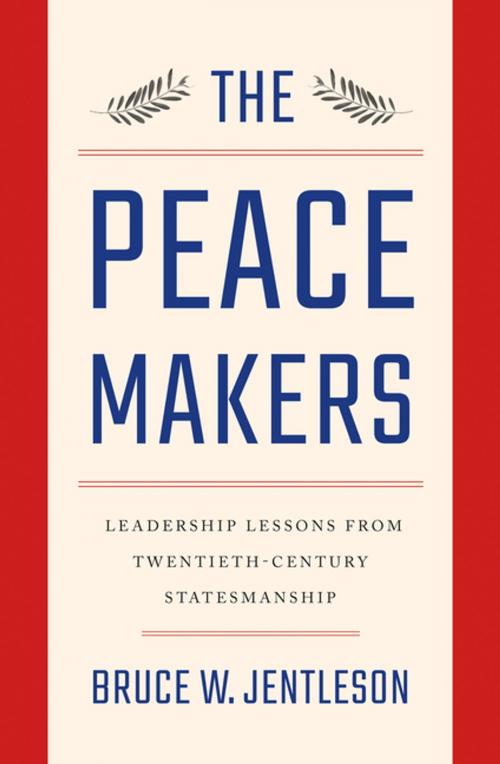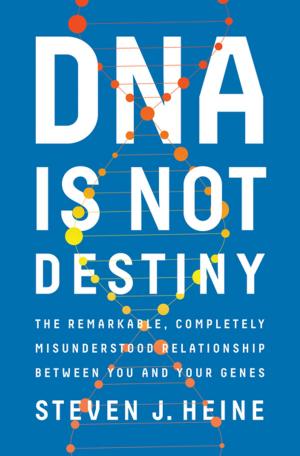The Peacemakers: Leadership Lessons from Twentieth-Century Statesmanship
Nonfiction, Social & Cultural Studies, Political Science, International, International Relations, History, Modern, 20th Century| Author: | Bruce W. Jentleson | ISBN: | 9780393249576 |
| Publisher: | W. W. Norton & Company | Publication: | April 24, 2018 |
| Imprint: | W. W. Norton & Company | Language: | English |
| Author: | Bruce W. Jentleson |
| ISBN: | 9780393249576 |
| Publisher: | W. W. Norton & Company |
| Publication: | April 24, 2018 |
| Imprint: | W. W. Norton & Company |
| Language: | English |
In the twentieth century, great leaders played vital roles in making the world a fairer and more peaceful place. How did they do it? What lessons can be drawn for the twenty-first-century global agenda?
Those questions are at the heart of The Peacemakers, a kind of global edition of John F. Kennedy’s Profiles in Courage. Writing at a time when peace seems elusive and conflict endemic, when tensions are running high among the major powers, when history has come roaring back, when democracy and human rights are yet again under siege, when climate change is moving from future to present tense, and when transformational statesmanship is so needed, Bruce W. Jentleson shows how twentieth-century leaders of a variety of types—national, international institutional, sociopolitical, nongovernmental—rewrote the zero-sum scripts they were handed and successfully made breakthroughs on issues long thought intractable.
The stories are fascinating: Henry Kissinger, Zhou Enlai, and the U.S.-China opening; Mikhail Gorbachev and the end of the Cold War; Dag Hammarskjöld’s exceptional effectiveness as United Nations secretary-general; Nelson Mandela and South African reconciliation; Yitzhak Rabin seeking Arab-Israeli peace; Mahatma Gandhi as exemplar of anticolonialism and an apostle of nonviolence; Lech Walesa and ending Soviet bloc communism; Gro Harlem Brundtland and fostering global sustainability; and a number of others. While also taking into account other actors and factors, Jentleson tells us who each leader was as an individual, why they made the choices they did, how they pursued their goals, and what they were (and weren’t) able to achieve.
And not just fascinating, but also instructive. Jentleson draws out lessons across the twenty-first-century global agenda, making clear how difficult peacemaking is, while powerfully demonstrating that it has been possible—and urgently stressing how necessary it is today. An ambitious book for ambitious people, The Peacemakers seeks to contribute to motivating and shaping the breakthroughs on which our future so greatly depends.
In the twentieth century, great leaders played vital roles in making the world a fairer and more peaceful place. How did they do it? What lessons can be drawn for the twenty-first-century global agenda?
Those questions are at the heart of The Peacemakers, a kind of global edition of John F. Kennedy’s Profiles in Courage. Writing at a time when peace seems elusive and conflict endemic, when tensions are running high among the major powers, when history has come roaring back, when democracy and human rights are yet again under siege, when climate change is moving from future to present tense, and when transformational statesmanship is so needed, Bruce W. Jentleson shows how twentieth-century leaders of a variety of types—national, international institutional, sociopolitical, nongovernmental—rewrote the zero-sum scripts they were handed and successfully made breakthroughs on issues long thought intractable.
The stories are fascinating: Henry Kissinger, Zhou Enlai, and the U.S.-China opening; Mikhail Gorbachev and the end of the Cold War; Dag Hammarskjöld’s exceptional effectiveness as United Nations secretary-general; Nelson Mandela and South African reconciliation; Yitzhak Rabin seeking Arab-Israeli peace; Mahatma Gandhi as exemplar of anticolonialism and an apostle of nonviolence; Lech Walesa and ending Soviet bloc communism; Gro Harlem Brundtland and fostering global sustainability; and a number of others. While also taking into account other actors and factors, Jentleson tells us who each leader was as an individual, why they made the choices they did, how they pursued their goals, and what they were (and weren’t) able to achieve.
And not just fascinating, but also instructive. Jentleson draws out lessons across the twenty-first-century global agenda, making clear how difficult peacemaking is, while powerfully demonstrating that it has been possible—and urgently stressing how necessary it is today. An ambitious book for ambitious people, The Peacemakers seeks to contribute to motivating and shaping the breakthroughs on which our future so greatly depends.















